How to hang a roller blind like a pro - an easy guide to update your windows in no time
Everything you need to know from measuring to installing, and a quick-fix alternative for the less DIY savvy
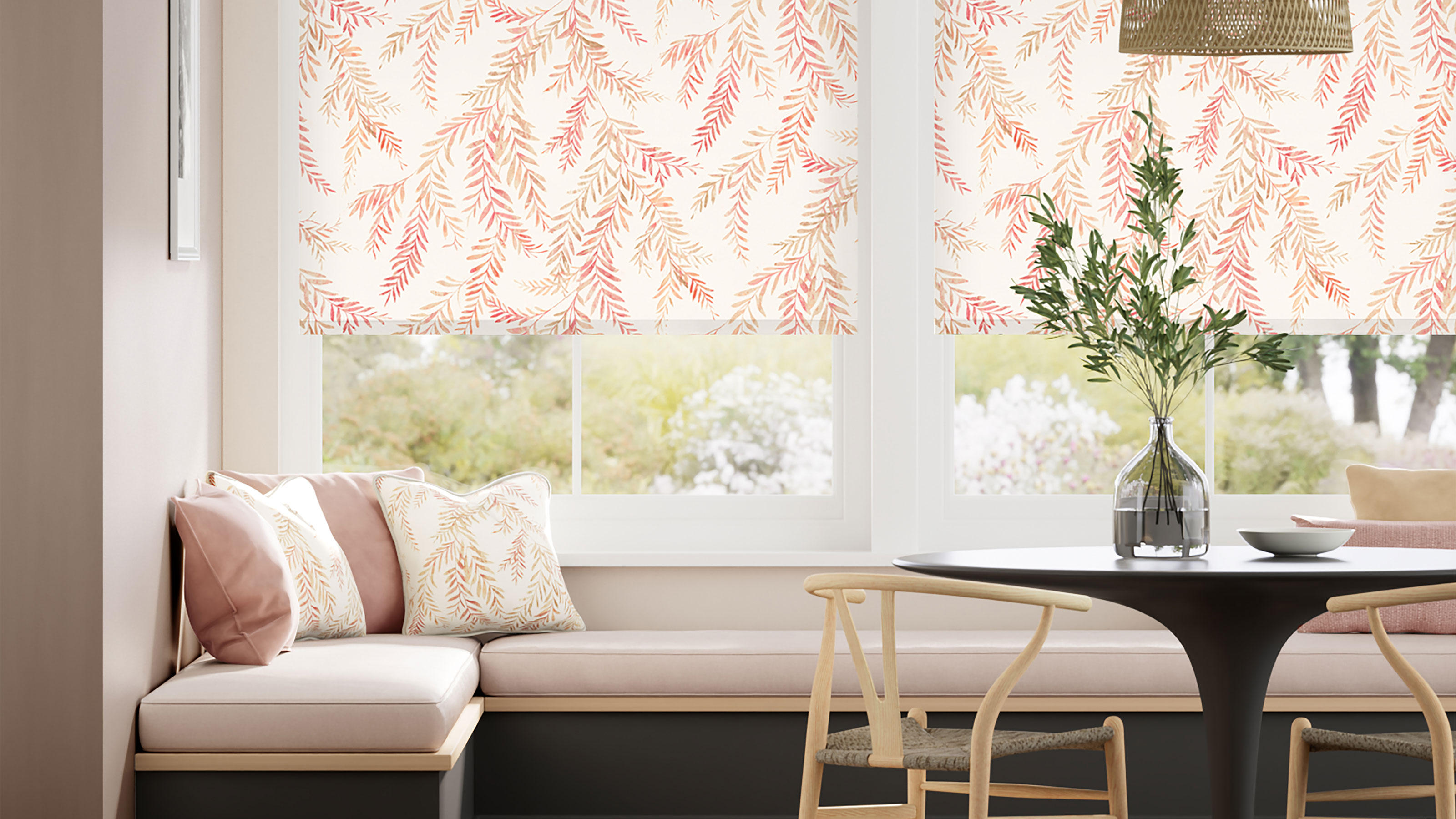

Knowing how to hang roller blinds can help you finish off a recently decorated room without spending on a professional to do the job for you. Trying yourself might seem like a fiddly job, but with our easy-to-understand guide, you'll be ready to update your window dressings in no time with this easy DIY project.
First, you will need to think about where your blind will work best. 'Before measuring for a blind, if your window has a recess you will need to decide if you are going to hang it on the inside or the outside,' explains Tim Warren, DIY expert at Adkwik. 'Check that there is nothing present in the area that will prevent the blind from being fully extended.'
It's also vital to make sure your blind is big enough to block out any light, as Tim explains: 'If measuring outside of a window recess, measure where you want the side edges of the blind to be, and ensure that this extends enough to prevent light bleed from the window.'
How to hang roller blinds
Before you begin updating your bedroom blind ideas or bathroom window dressings, gather the kit below and our experts will guide you carefully through the process of how to hang roller blinds.
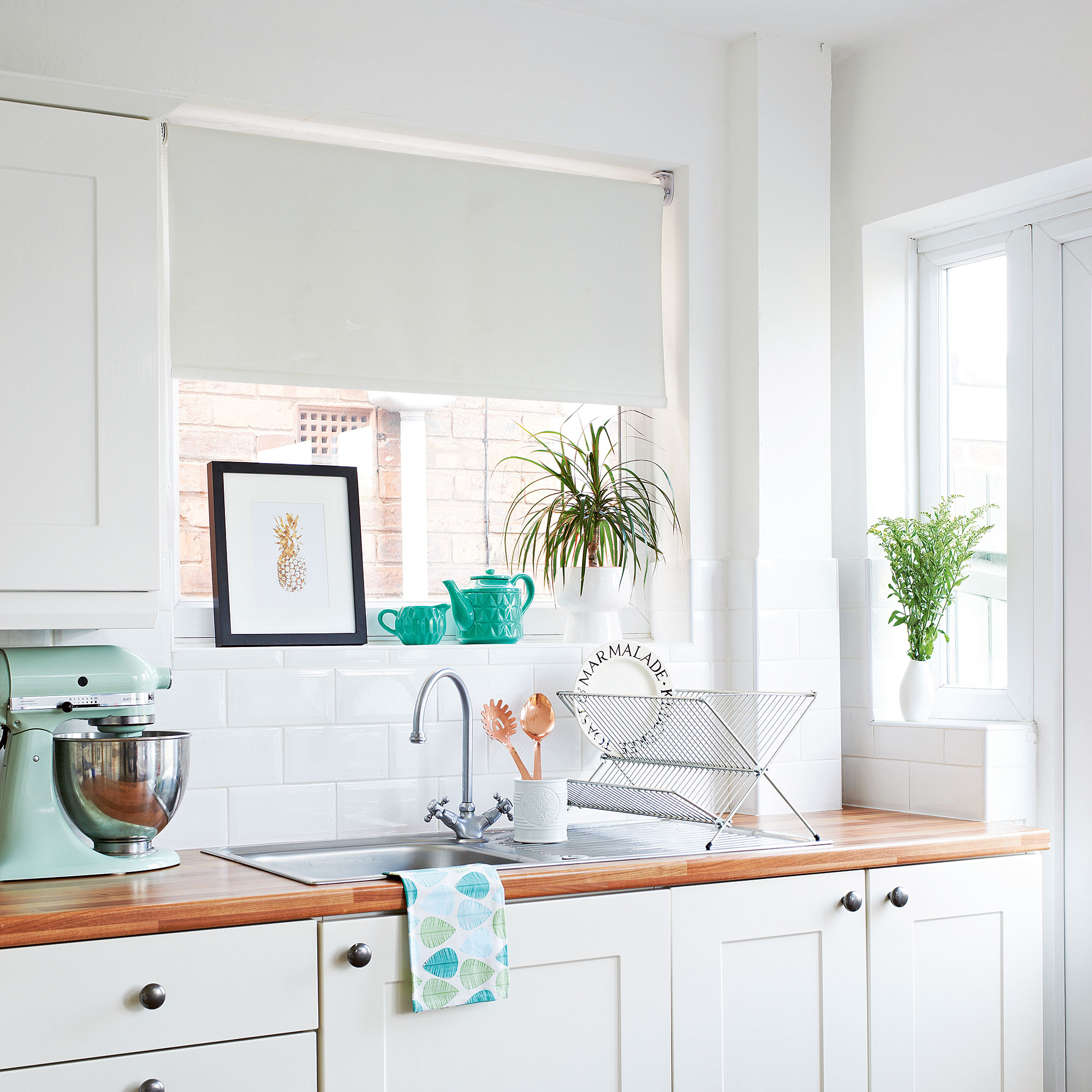
What you will need
- Roller blind and fittings (often comes as a kit) Blinds 2go has a good made-to-measure range
- Ladder
- Pencil
- Measuring tape
- Level
- Try the Makita combi drill from Screwfix
- Screws and rawplugs
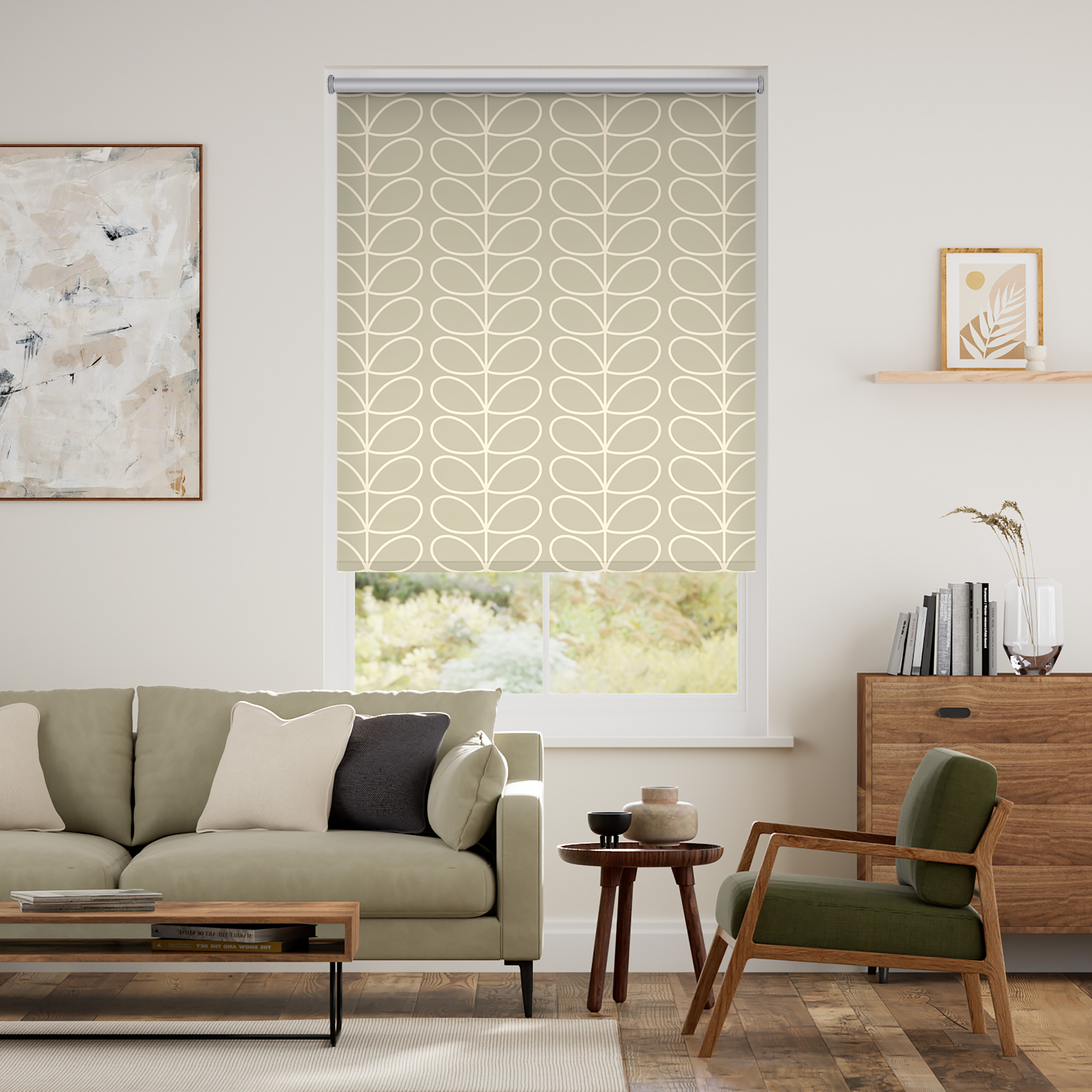
1. Measure the space carefully
When buying a roller blind, decide whether you want it to sit inside the window recess (if you have one) or on the outside and make sure you measure the area carefully so there won't be any gaps where the light can come through, especially when it comes to bedroom blinds.
'If you’re measuring a blind to sit on a wall above the window, then you’ll want your blind to be slightly wider and longer than the recess to ensure it blocks out the light,' advises Ryan McDonough, interior design expert at Myjobquote.co.uk.
It's also important to measure your window in several places to find the correct measurements. 'Most roller blind suppliers only require the width and depth of your recess for fitting but don’t be tempted to measure this in one place,' explains Ryan.
Get the Ideal Home Newsletter
Sign up to our newsletter for style and decor inspiration, house makeovers, project advice and more.
'Not all recesses are completely square, so you may find the top is wider than the bottom and vice versa. So, take a measurement from the top, bottom and middle and go with the smallest width. Do the same with the height, taking a measurement from the right-hand side, middle and left-hand side of the recess.'
If you decide to hang your blind within a recess, make sure the blind will be able to hang freely, as Ryan explains: 'When you’re deciding where to place your brackets inside a window recess, check for obstacles such as handles as these may require you to position the brackets further away from the window frame to allow the blind to roll down unhindered.'
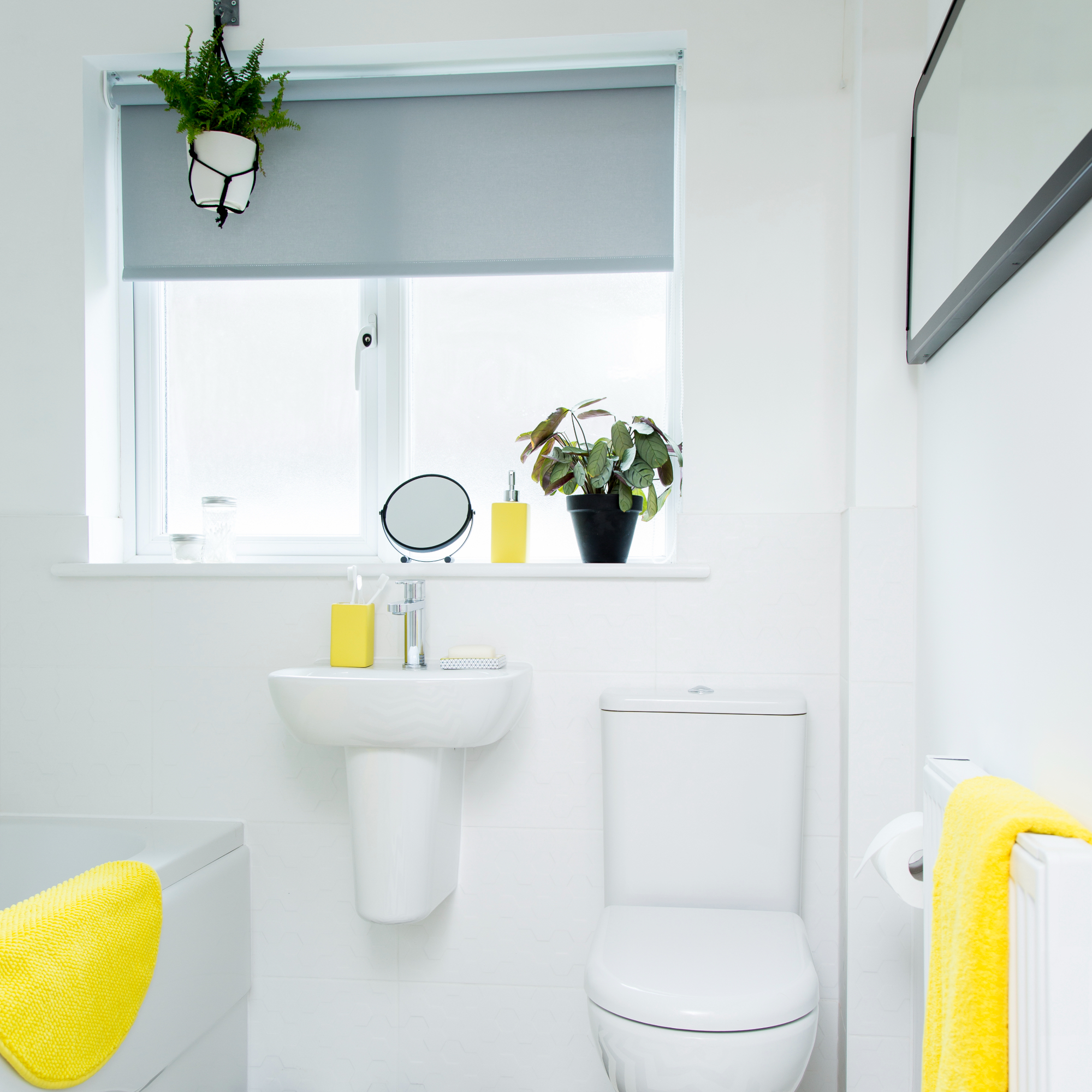
2. Position your blind brackets
Now you've measured the space and bought the right size roller blind, it's time to secure the fixing brackets in place to hang your blind. 'Start off by identifying which end is the control end of your blind – this will be the sidewinder with the chain control, and the opposite side is your pin end,' explains Helen O'Connor, product manager at 247 blinds. 'Next, place your brackets where you would like your roller blind to hang, whether that’s inside or outside your recess.'
Once you've decided on the position, check the blind will sit evenly within the space and begin securing the brackets into place. 'Mark the position of the brackets and the drill holes with the pencil, then take your screws and begin to mount one of the brackets,' explains Helen.
'Ensure you leave this bracket slightly loose, and screw the second hole. Once this is done, go back to the first screw and completely drill this in, then repeat this step on the opposite bracket.'
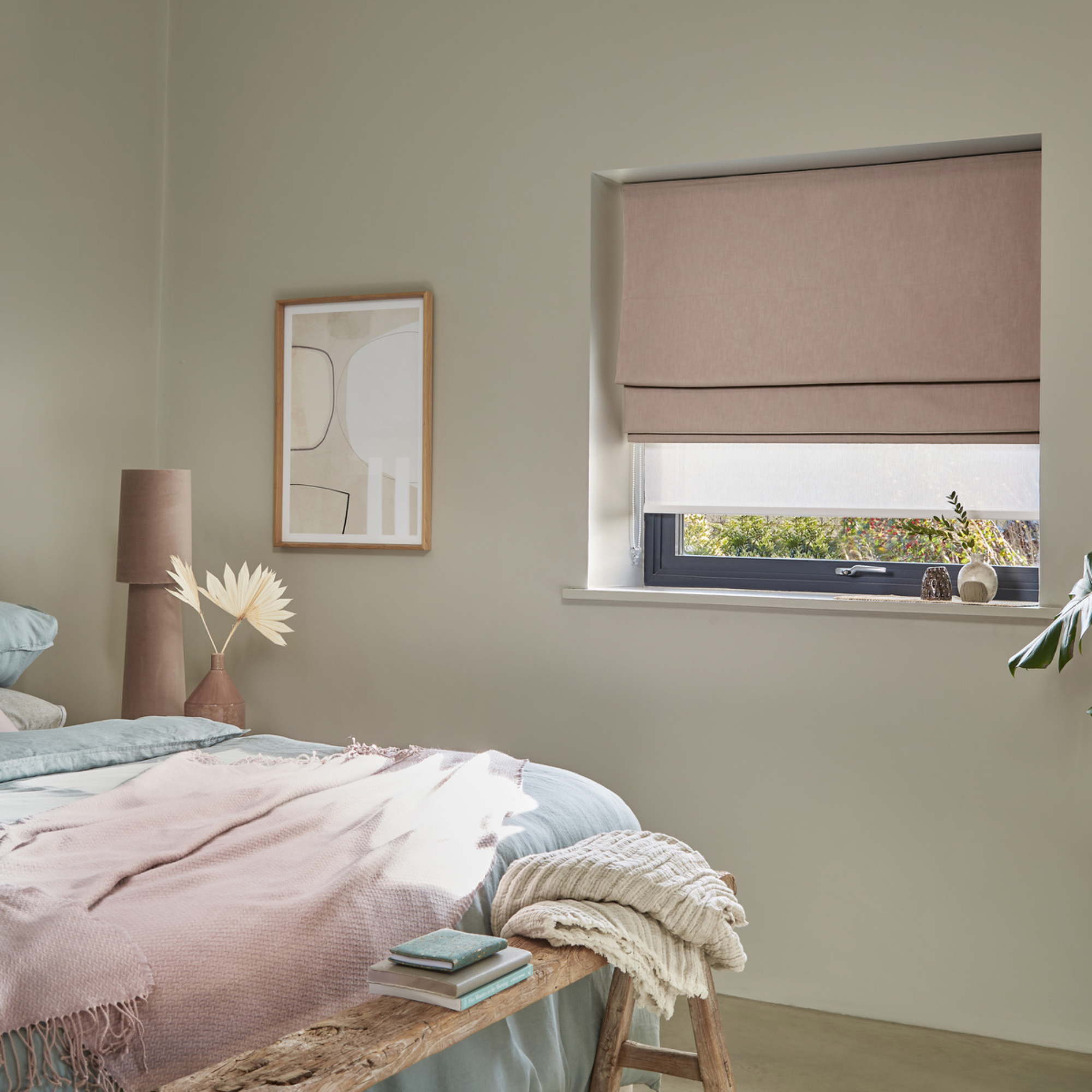
3. Hang the roller blind
The hardest part of hanging a roller blind is making sure the fixing brackets are in the right position and level. Once you've done that, your blind will simply click into place.
'Take your blind, leaving it wound up, and push the pin end into the brackets. This is the end without the chain control,' says Helen. 'Connect the other side by pressing the pin end in and slotting the blind into the cross-shaped depressions. Push down and the blind will click into place.'
Once your blind is in place, it's a good idea to check it functions properly and to make sure it fits flush against the area. 'Pull the blind down to check its level and operating as normal. You may want to use a spirit level to ensure your blind is level in the brackets,' adds Helen.
The most important part of the process is making sure the blind is child-safe. 'Finally ensure you fit the child-safety mechanism to the wall on the control-end of the blind, at least 1.5m from the floor,' explains Helen. 'This will ensure your chain stays taut and out of the way, keeping little ones and pets safe.'
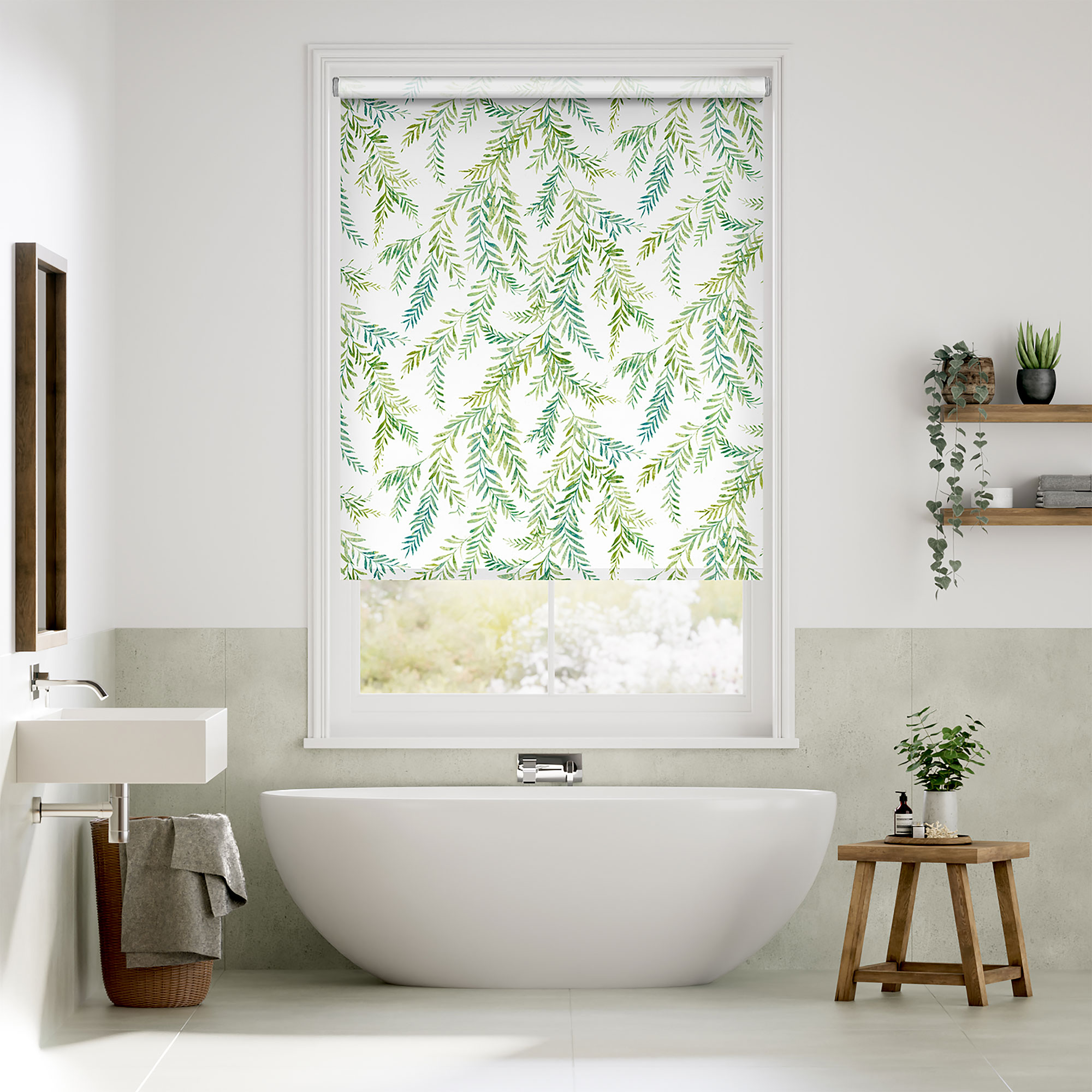
FAQs
Should roller blinds roll over or under?
The choice of whether you let your blind roll over or under comes down to a couple of factors. 'Roller blinds can be rolled under or over – under rolled will ensure your blinds are as close to the window as possible, whereas over rolled is great if you have obstructions near the glass like a lock or window sill décor,' explains Sofie Flachs Melson, director and partner at Color & Co.

Leah Aspinall is the head of design at the UK's leading curtains and blinds provider. With years of experience in design, she's passionate about interior design ideas and turning spaces into dreams.
Is it hard to install roller blinds?
'Roller Blinds are very easy to install, it’s simply a case of fitting the brackets and then slotting the blind into place,' says Leah Aspinall, head of design at Blinds 2go. 'There are optional upgrades you can add on, like electric functionality, that add a few extra steps to fitting, but even with these, it’s still a very simple process.'
It's even possible to get a roller blind that doesn't need any wall fixings or drilling to fit it. 'If you’d like an even easier installation, many roller blinds are available with no drill installation option, Twist2Go, when fitting inside a recess, so all you need to do then is slot the blind into place and twist the tightening wheel, your blind will be up in a matter of minutes!' adds Leah.
The key takeaway is that hanging a roller blind is pretty simple to do yourself when updating any window dressing ideas.
'The vast majority of people should be more than capable of installing roller blinds, although the process does require some basic DIY skills,' explains Robert Quinton, DIY expert and owner of Construction Megastore.
'With the right tools and instructions, though, the process of measuring, drilling, and fitting the blinds should be within the practical capabilities of most people.'

Amy Hodge has been working on interiors magazines for over 11 years. She's a freelance writer and sub editor who has worked for some of the UK's leading interiors magazines including Ideal Home, Style at Home and Country Homes & Interiors. She started at Style at Home just after it launched as food editor and is now chief sub editor for Ideal Home, Style at Home and Country Homes & Interiors.
-
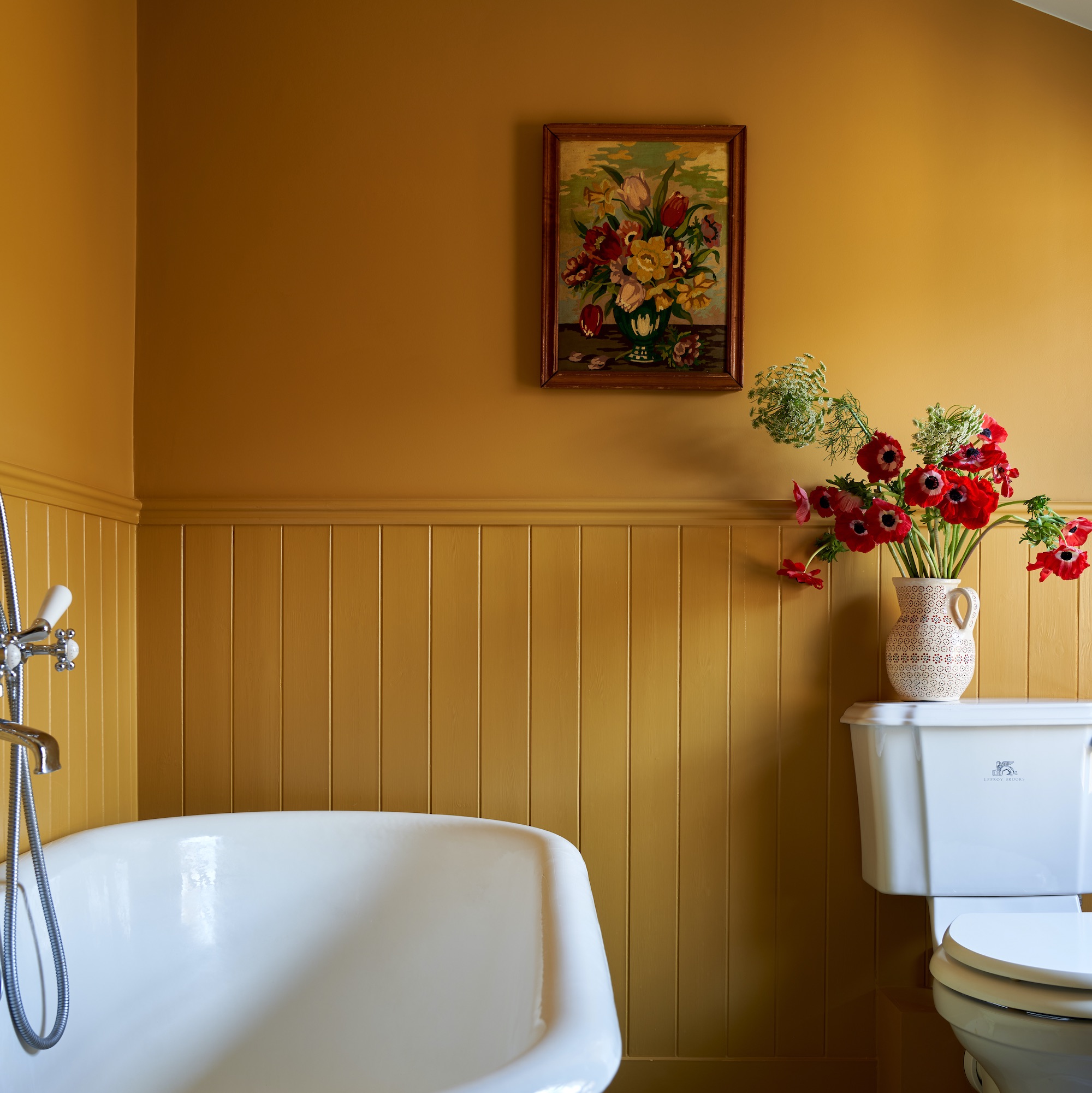 7 best colours to paint a windowless bathroom that will transform the mood of a dark wash space
7 best colours to paint a windowless bathroom that will transform the mood of a dark wash spaceA bathroom without a view needn’t sink your plans for a warm and welcoming retreat
By Linda Clayton
-
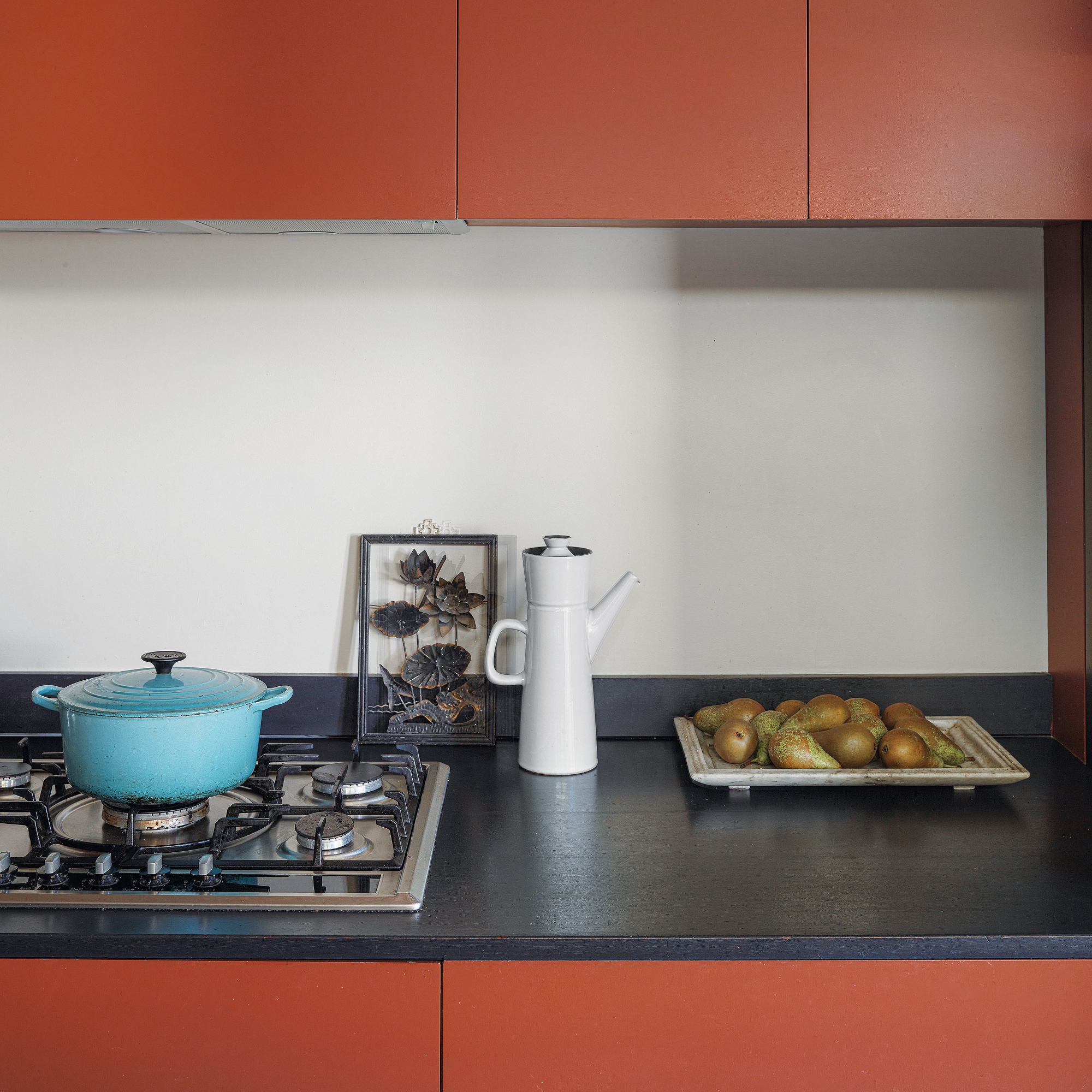 I’ve found a stunning £40 buy that rivals Le Creuset at Wilko - this casserole dish is a dead ringer for one of the most summery colourways
I’ve found a stunning £40 buy that rivals Le Creuset at Wilko - this casserole dish is a dead ringer for one of the most summery colourwaysYou just can't beat finding a great Le Creuset alternative
By Kezia Reynolds
-
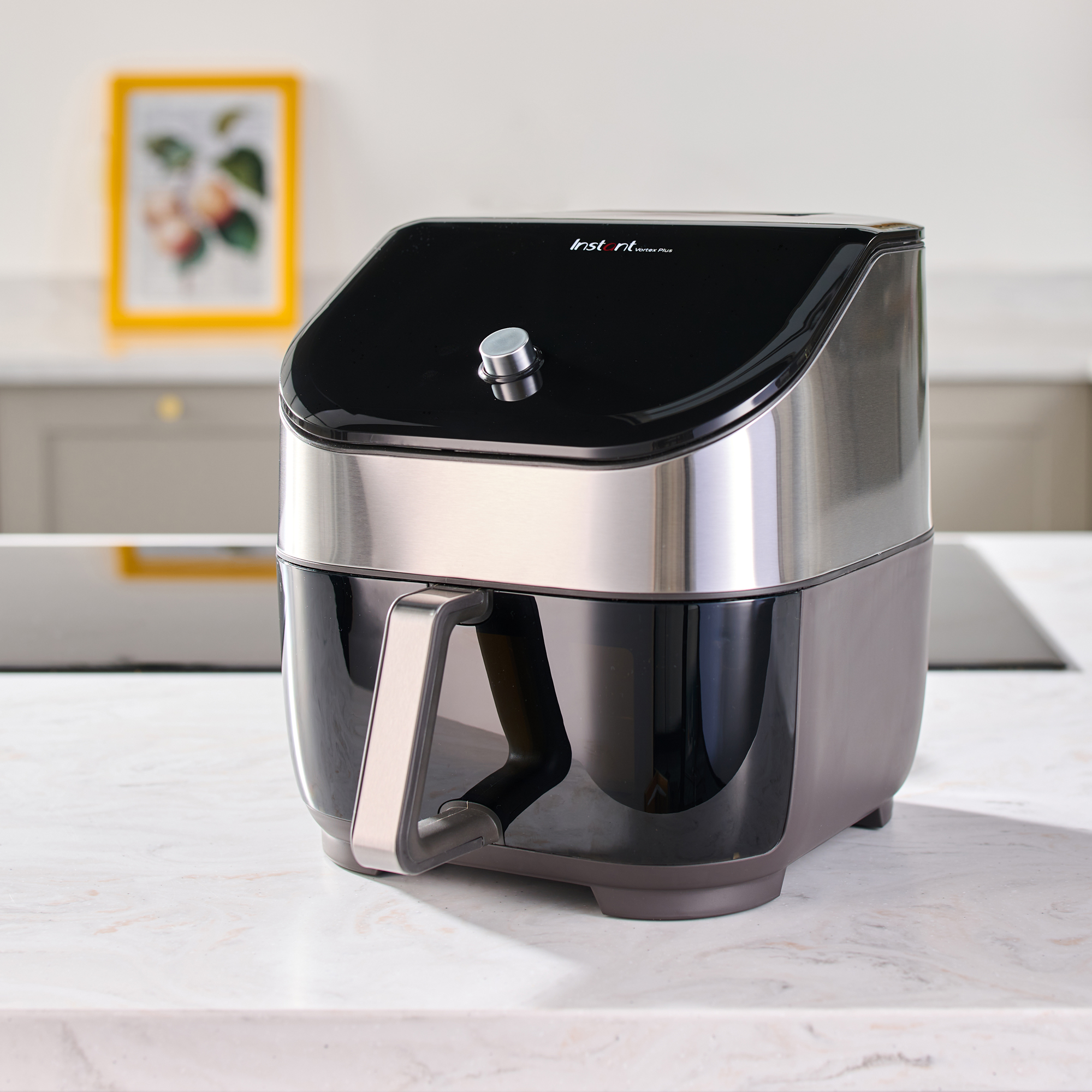 Should an air fryer be on display in a kitchen or hidden away? This is why I always keep my small appliances on the worktop
Should an air fryer be on display in a kitchen or hidden away? This is why I always keep my small appliances on the worktopAre you on team display or neatly hidden away? Share your opinion in the comments
By Rebecca Knight